Trumpet Solo
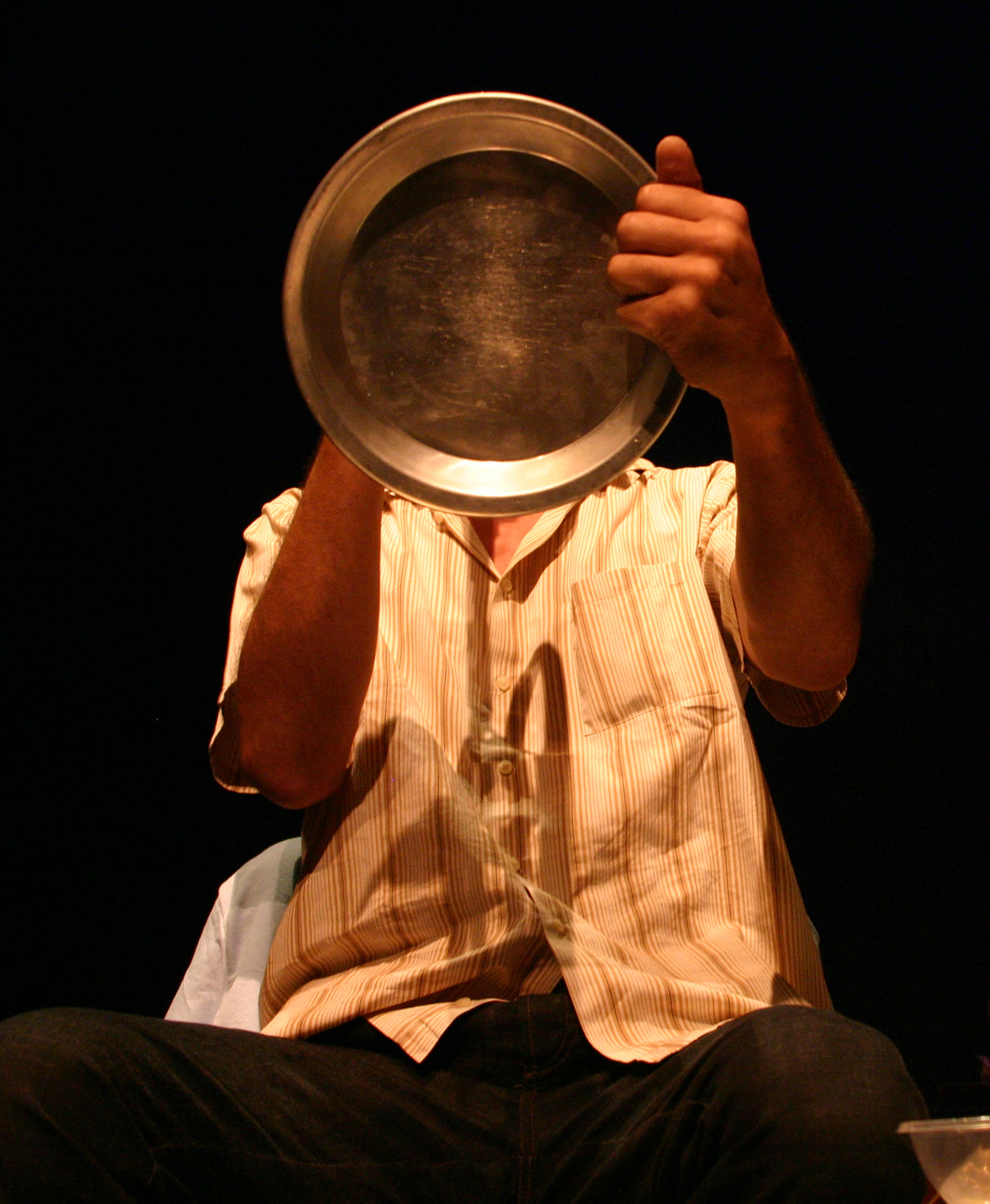

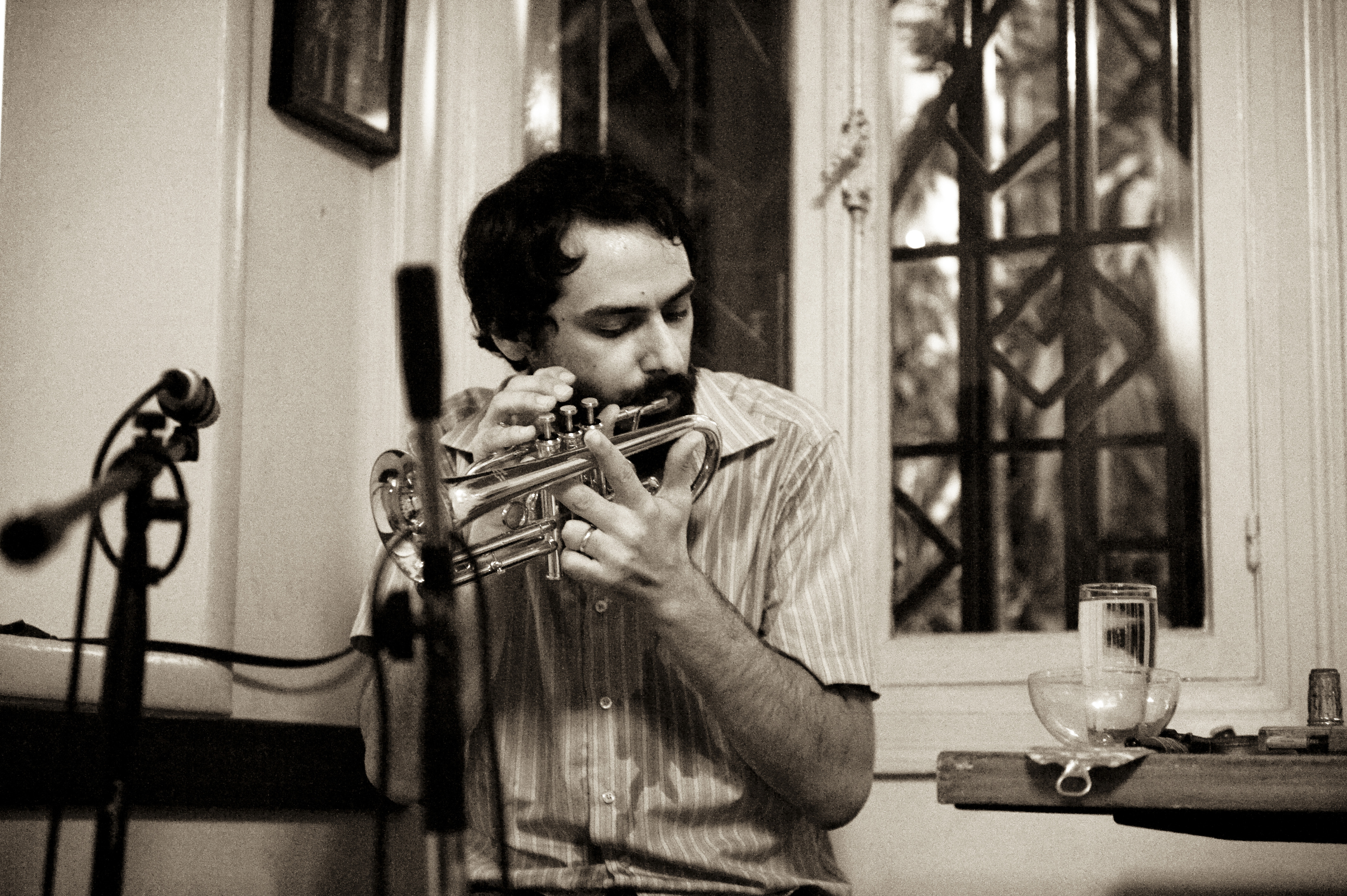
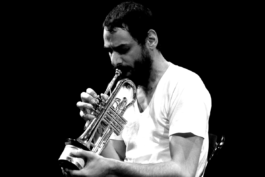
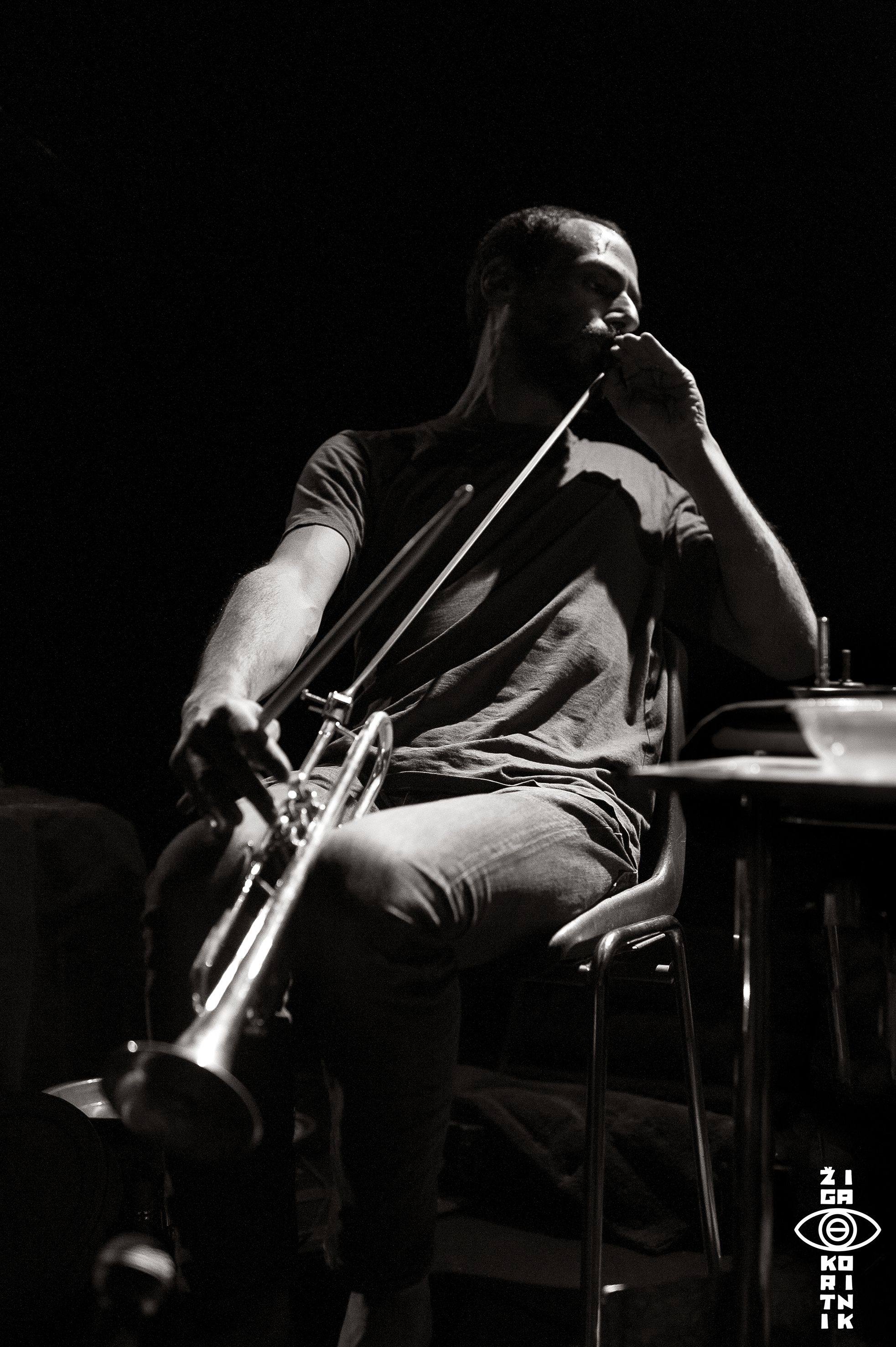
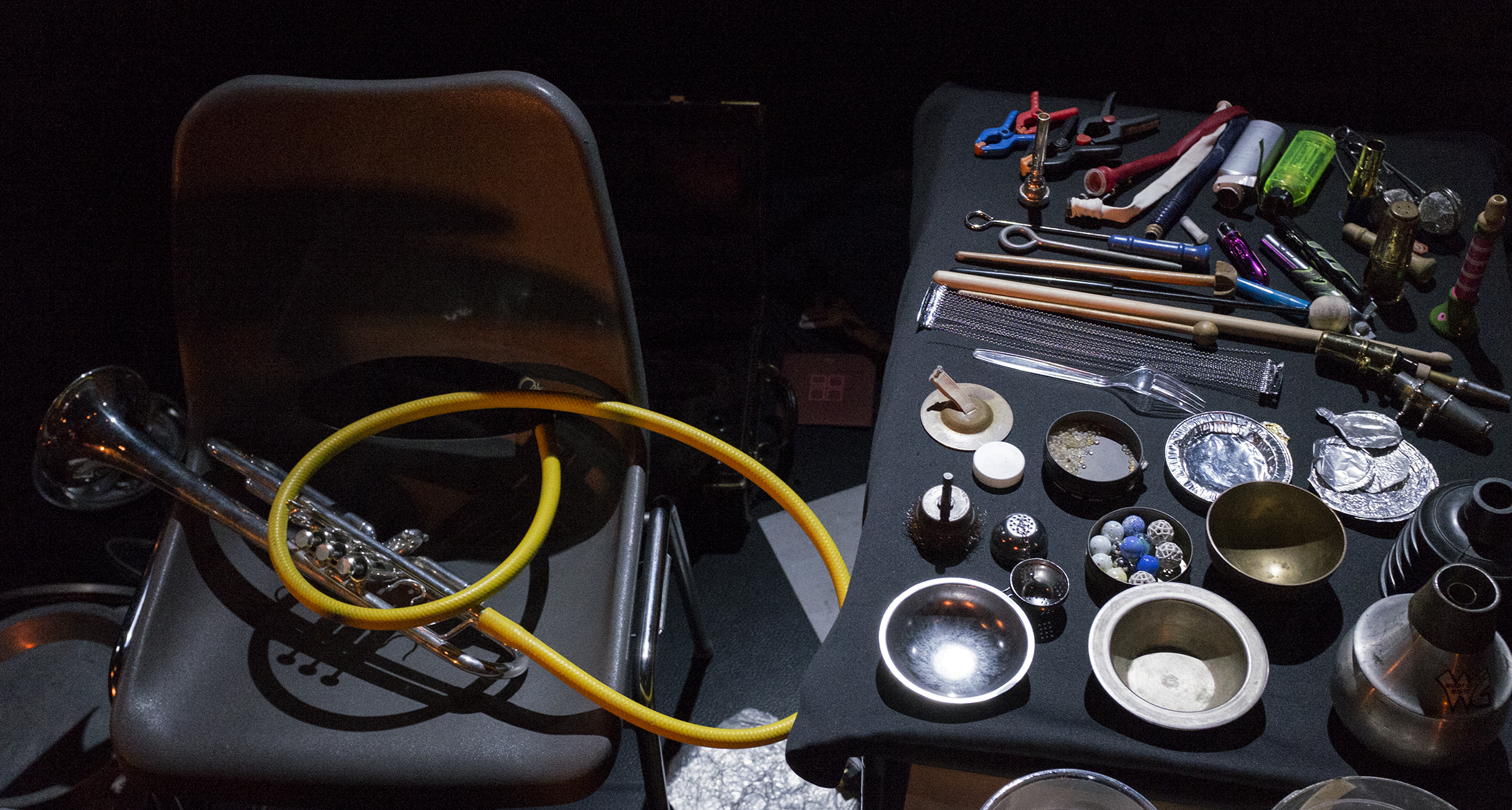
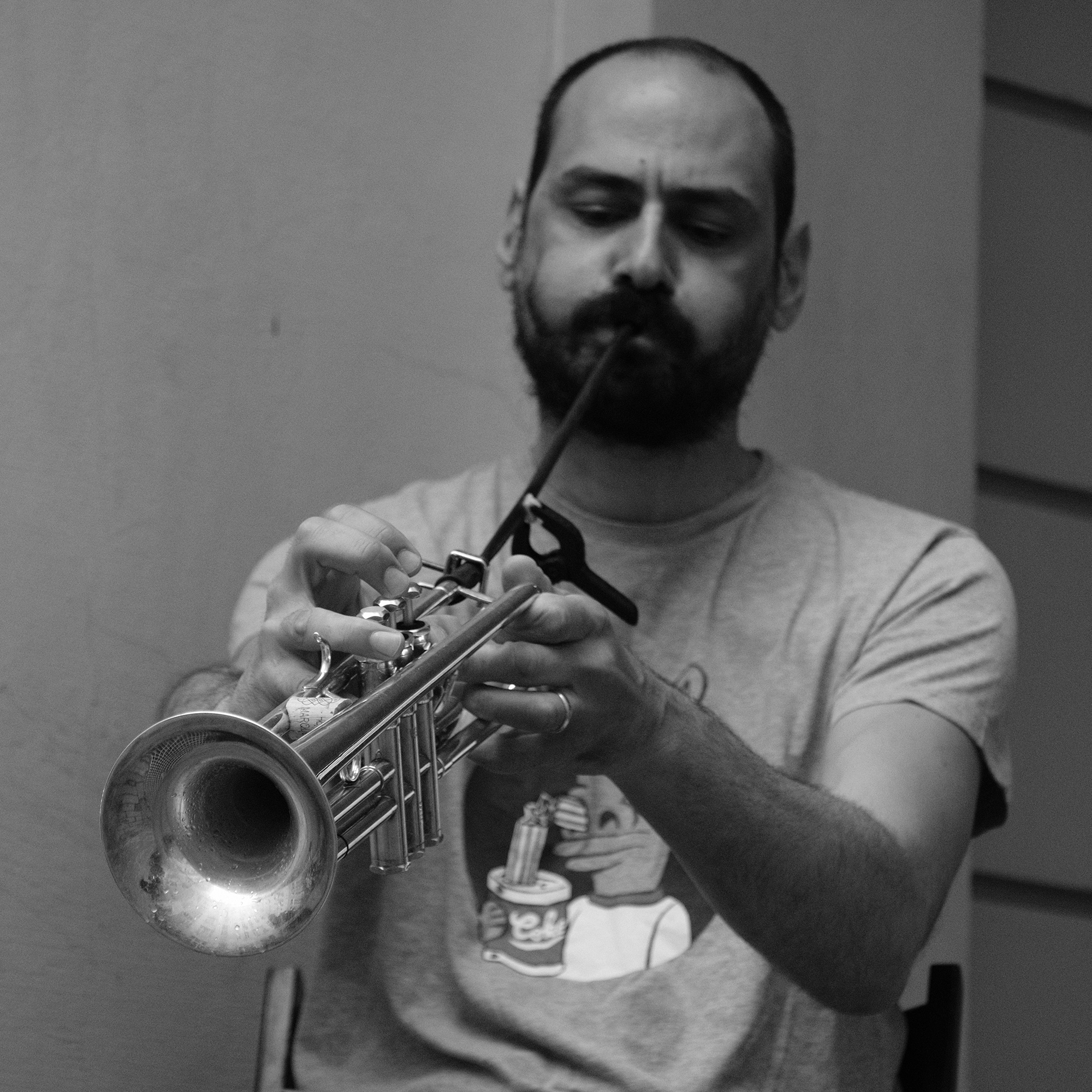
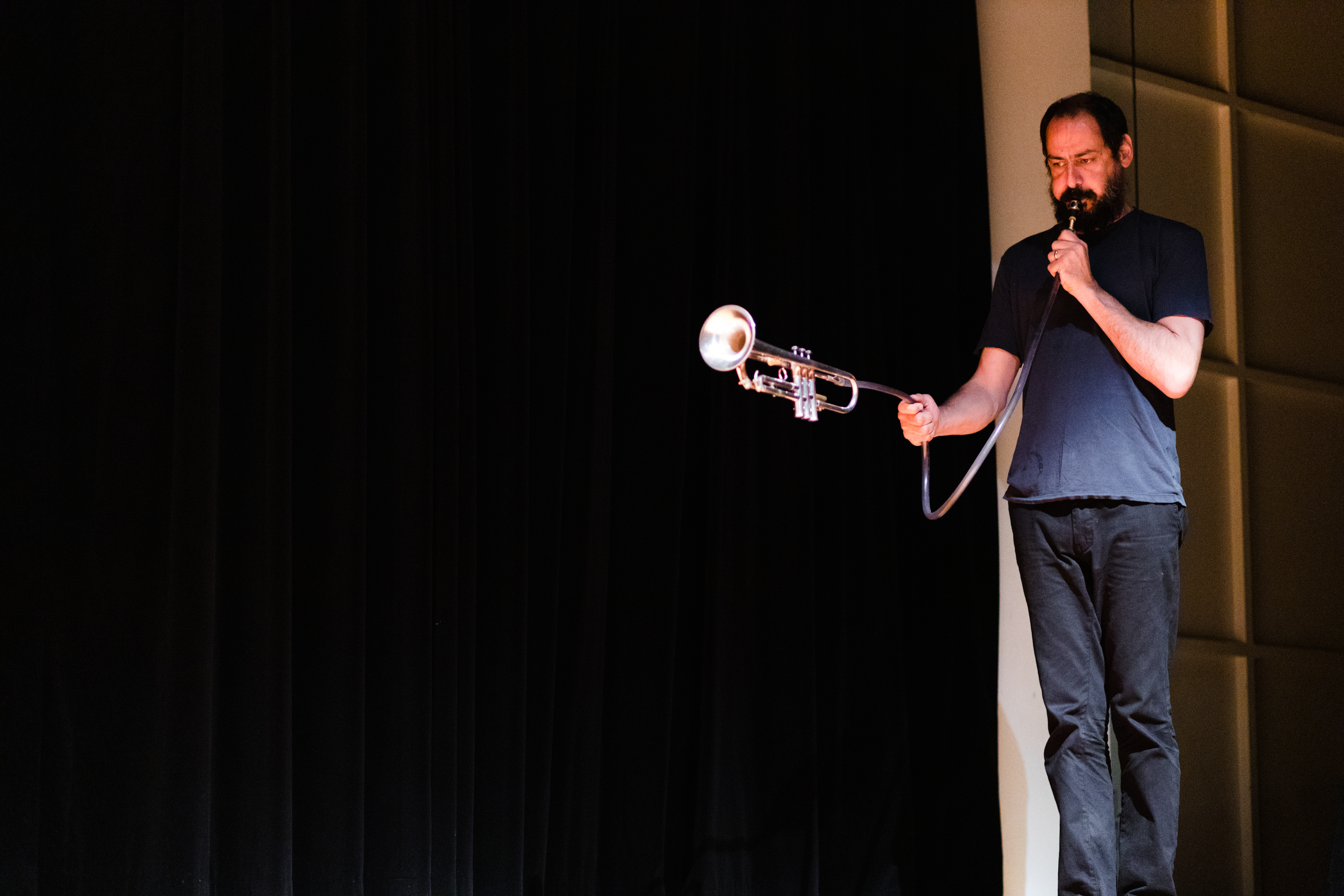
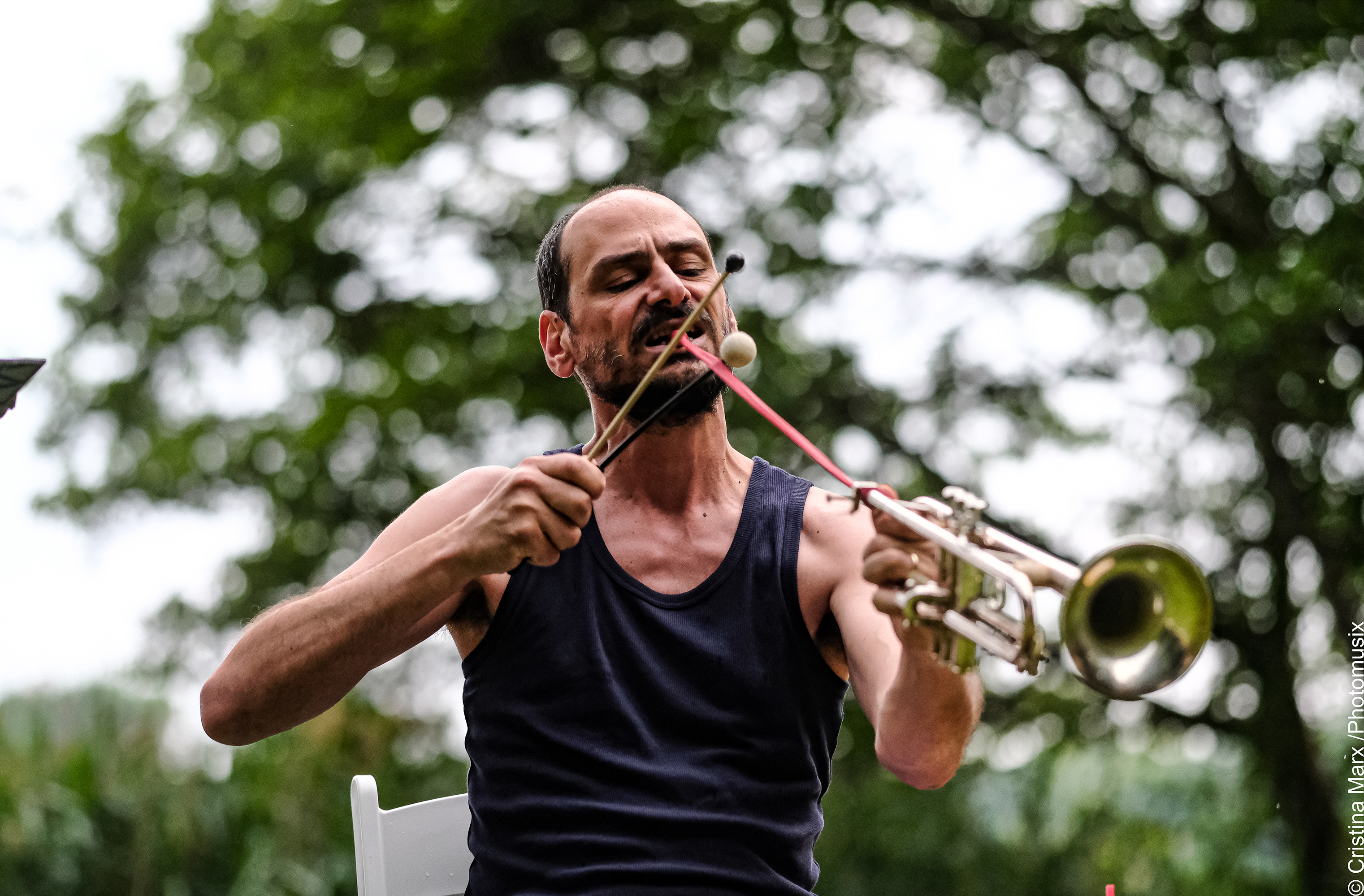
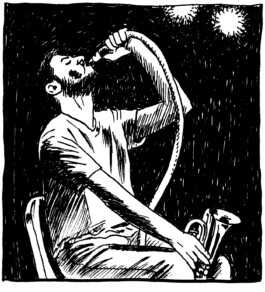
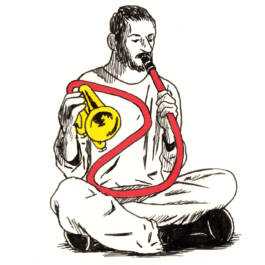
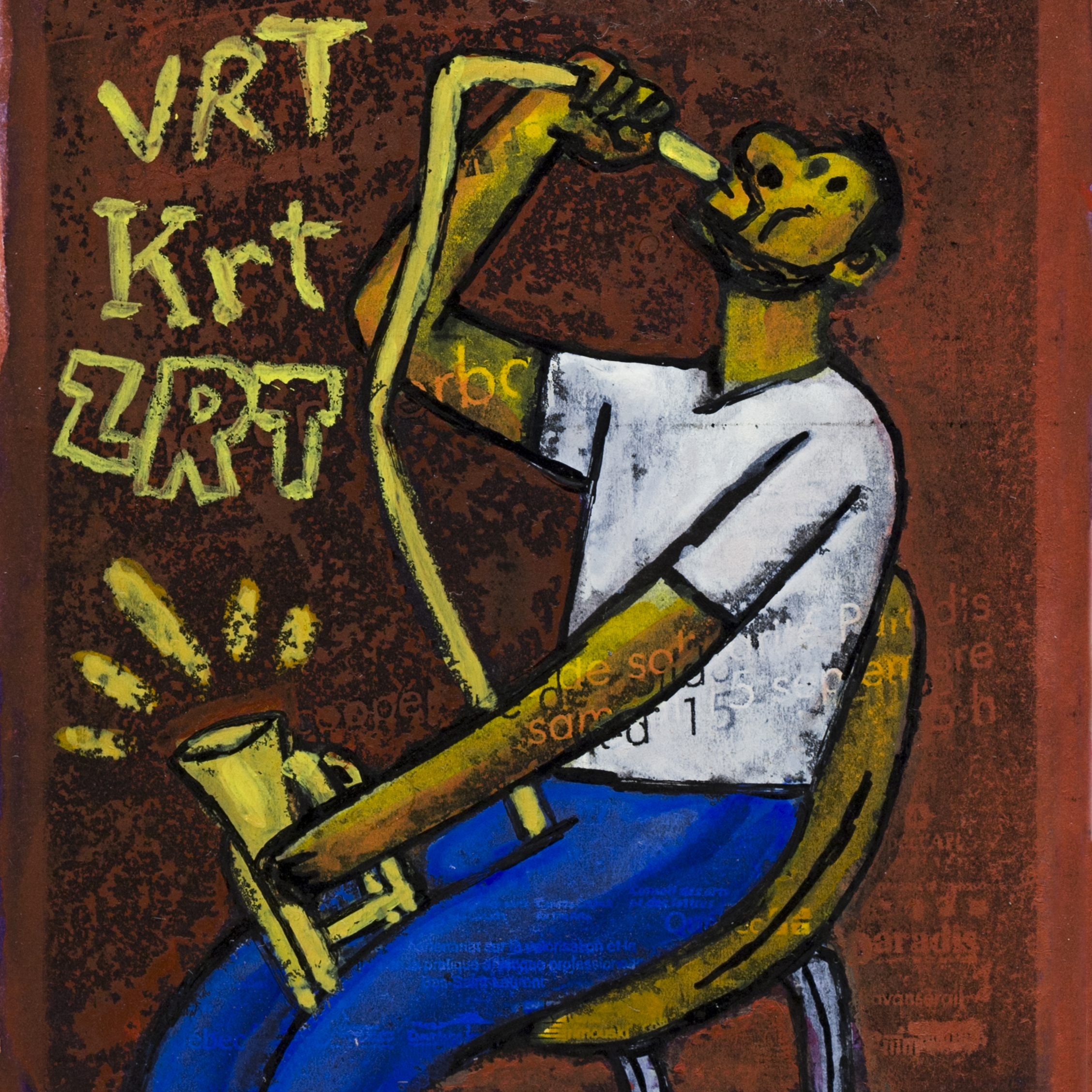
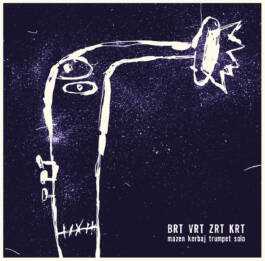
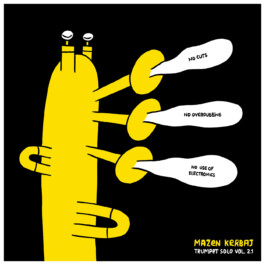
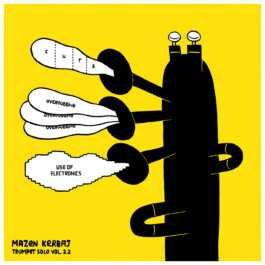
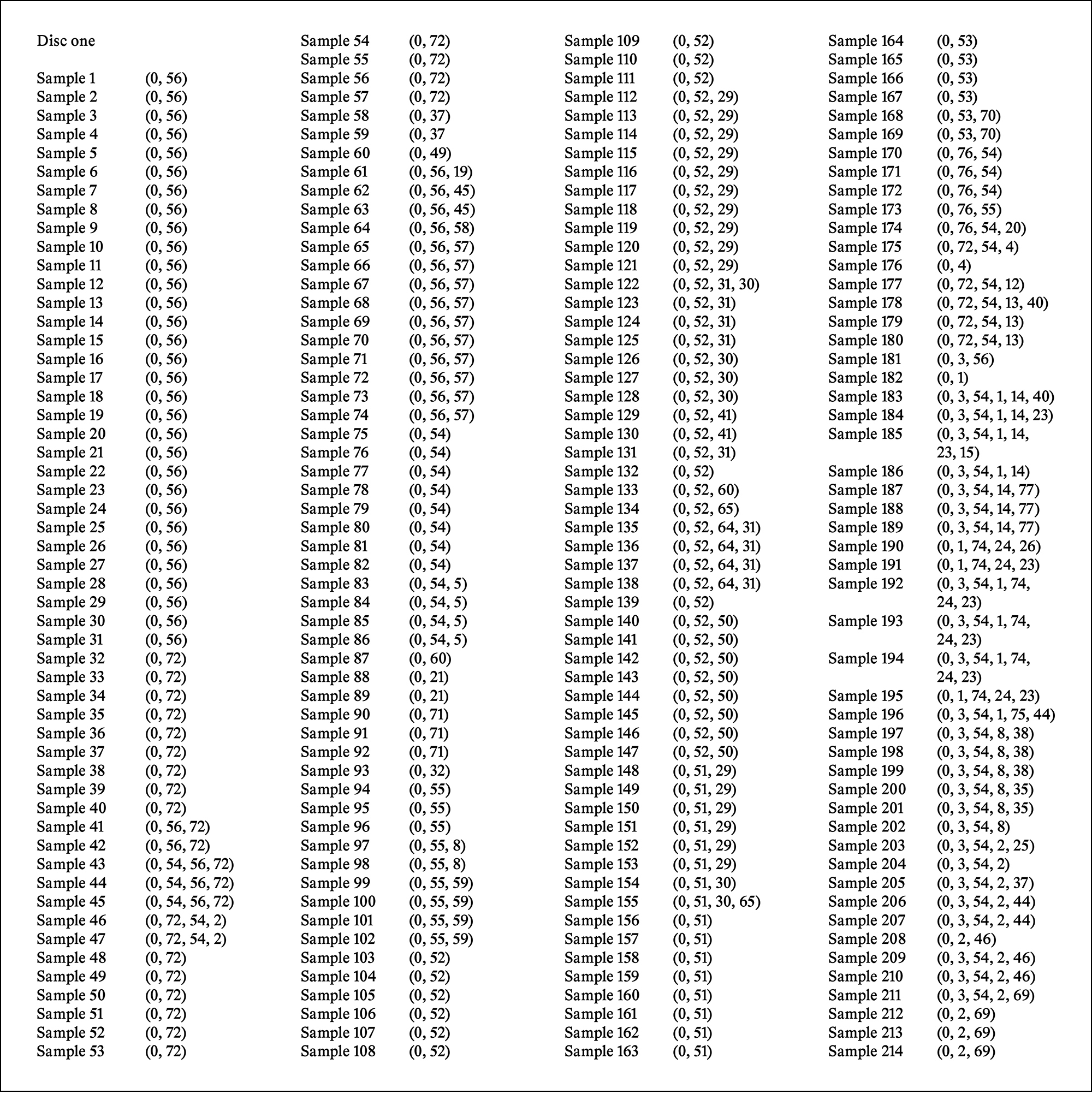
Baltimore 2005 (by stewart mostofsky)
Baltimore 2005 (by stewart mostofsky)
beirut 2008 (photographer unknown)
Beirut 2010 (Photographer unknown)
Stockholm, 2017 (by Ziga Koritnik)
Stockholm, 2017 (by mike keysendal)
berlin 2020 (by cristina marx)
Essen 2021 (by sophia hegewald)
Berlin 2021 (by cristina marx)
Self portrait (2014)
Self portrait (2018)
Self portrait (2012)
brt vrt zrt krt – trumpet solo vol. 1 (2004)
No cuts, no overdubbing, no use of electronics – trumpet solo vol. 2.1 (2019)
Cuts, overdubbing, use of electronics – trumpet solo vol. 2.2 (2019)
SAMPLER/SAMPLED – TRUMPET SOLO VOL. 3 (2022)
description
Playing in solo has always been an important part of Mazen Kerbaj’s musical journey; it is in this bare-bones setup that he can experiments the most with his instrument, pushing it beyond any recognition. His use of various every-day objects (tubes, plastic bowls, balloons, aluminium foil…) to “prepare” the trumpet, and his unique playing techniques allow him to create raw soundscapes that sound sometimes like electronics (he himself describes his playing as “electronic music, played acoustically”), especially when he plays several continuous layers of sound at the same time on an instrument that is not designed for that.
Besides his various preparations of the instrument, Kerbaj presents sometimes solo pieces involving heavy use of electronics and/or studio manipulation. The introduction of electronics to his setup is rarely to produce effects though, but rather to give himself new possibilities in the production and the layering of sound, or to add yet another sound source to his multi-layered playing, as demonstrated in his recent solo album Cuts, Overdubbing, Use of Electronics (2019).
In Sampler/Sampled, his latest trumpet solo released on Morphine records in 2022, Kerbaj pushes further the idea of sound transformation, by recording 318 short pieces of his acoustic trumpet playing and giving them to 13 musicians coming from various musical genres to use them as their sole material to create 13 new pieces of music.
Mazen Kerbaj's most (in)famous piece to date is Starry Night, a piece he recorded on the balcony of his flat in beirut during the Israeli-Lebanese war of July 2006, while the Israeli airforce was dropping bombs on the city. Dubbed by the artist as a piece for trumpet and bombs, it is nevertheless a trumpet solo piece, as well as a piece of sonic journalism (as described by Peter Cusack).
Kerbaj's radical approach to his instrument and to music making in general is in constant evolution and can be experienced live in one his lengthy and hypnotic solo concerts, or on records like BRT VRT ZRT KRT (2005) and No Cuts, No Overdubbing, No Use of Electronics (2019), or in the numerous videos published on his Vimeo channel.
Be it in his various recordings or in live concerts, in acoustic or in amplified setups, Kerbaj’s trumpet solos never fail to surprise
BIOGRAPHY
Mazen Kerbaj is widely considered as one of the initiators and key players of the Lebanese free improvisation and experimental music scene. He is co-founder and active member of MILL, the cultural music association behind Irtijal, an annual improvisation music festival held in Beirut since 2001 (www.irtijal.org), and co-founder of Al Maslakh, the first label for experimental music in the region operating since 2005 (www.almaslakh.org). As a trumpet player, whether in solo performances or with long-lasting groups like “A” Trio, Kerbaj pushes the boundaries of the instrument and continues to develop a personal sound and an innovative language, following in the footsteps of pioneers like Bill Dixon, Axel Dörner and Franz Hautzinger.
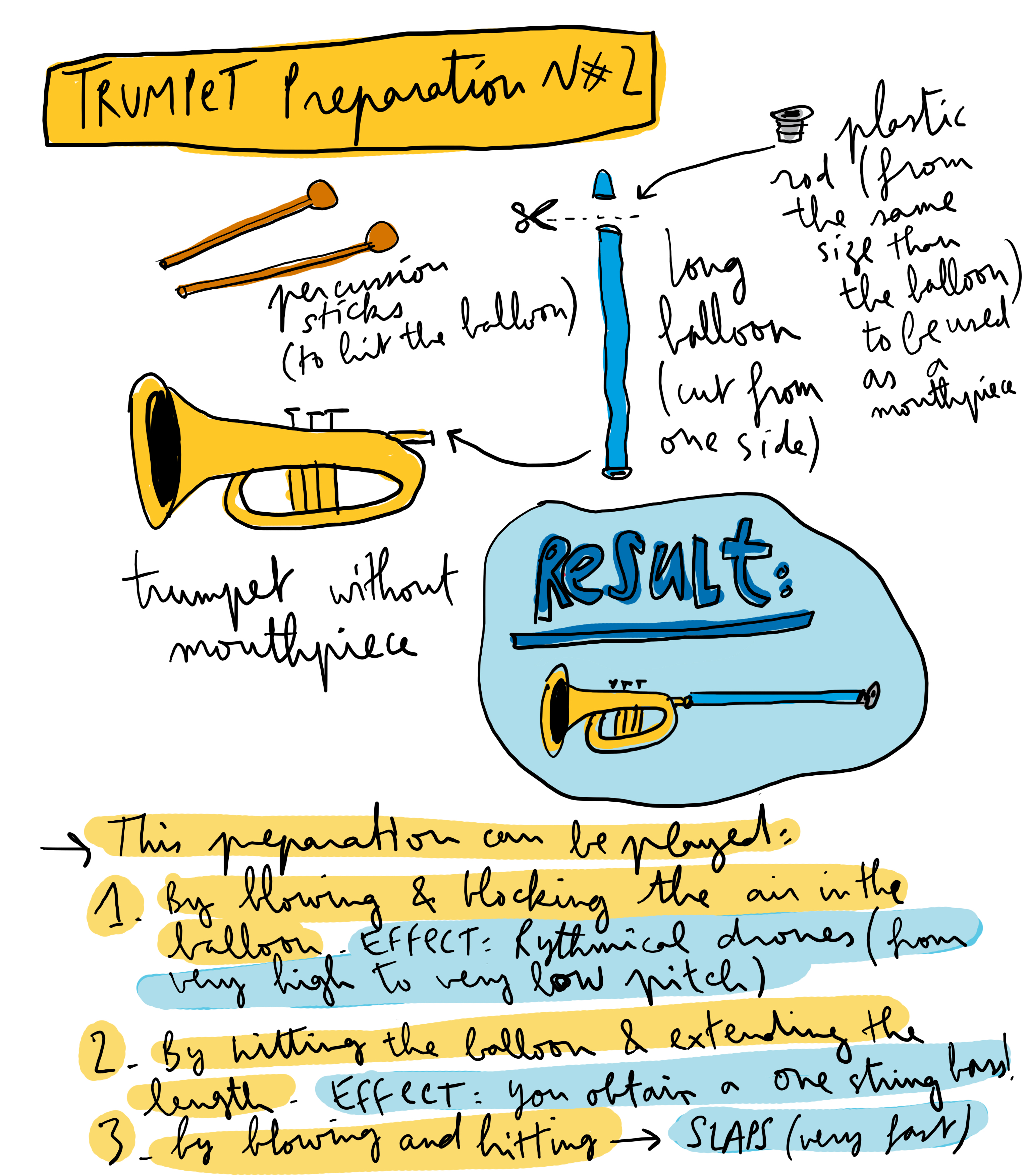
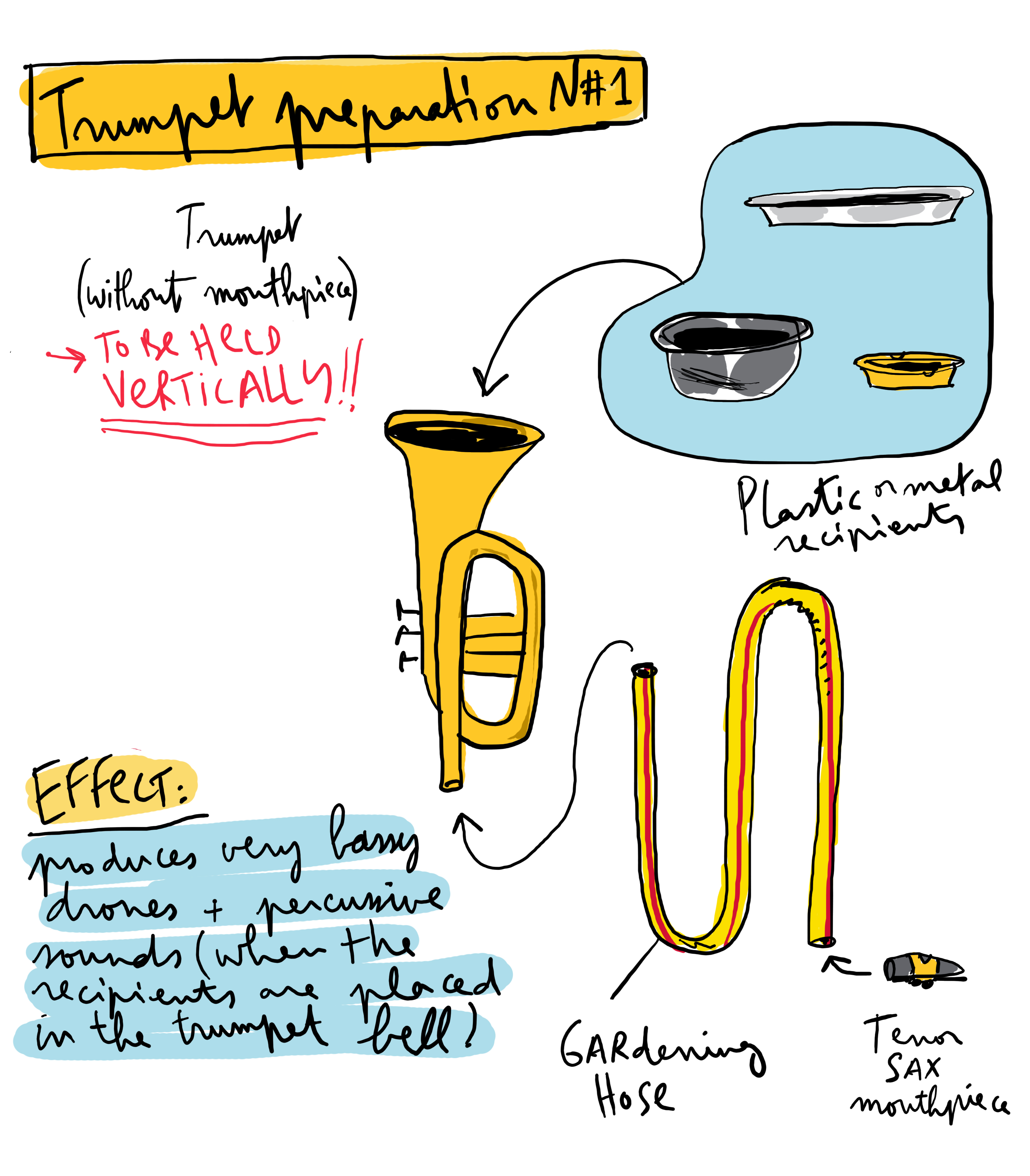
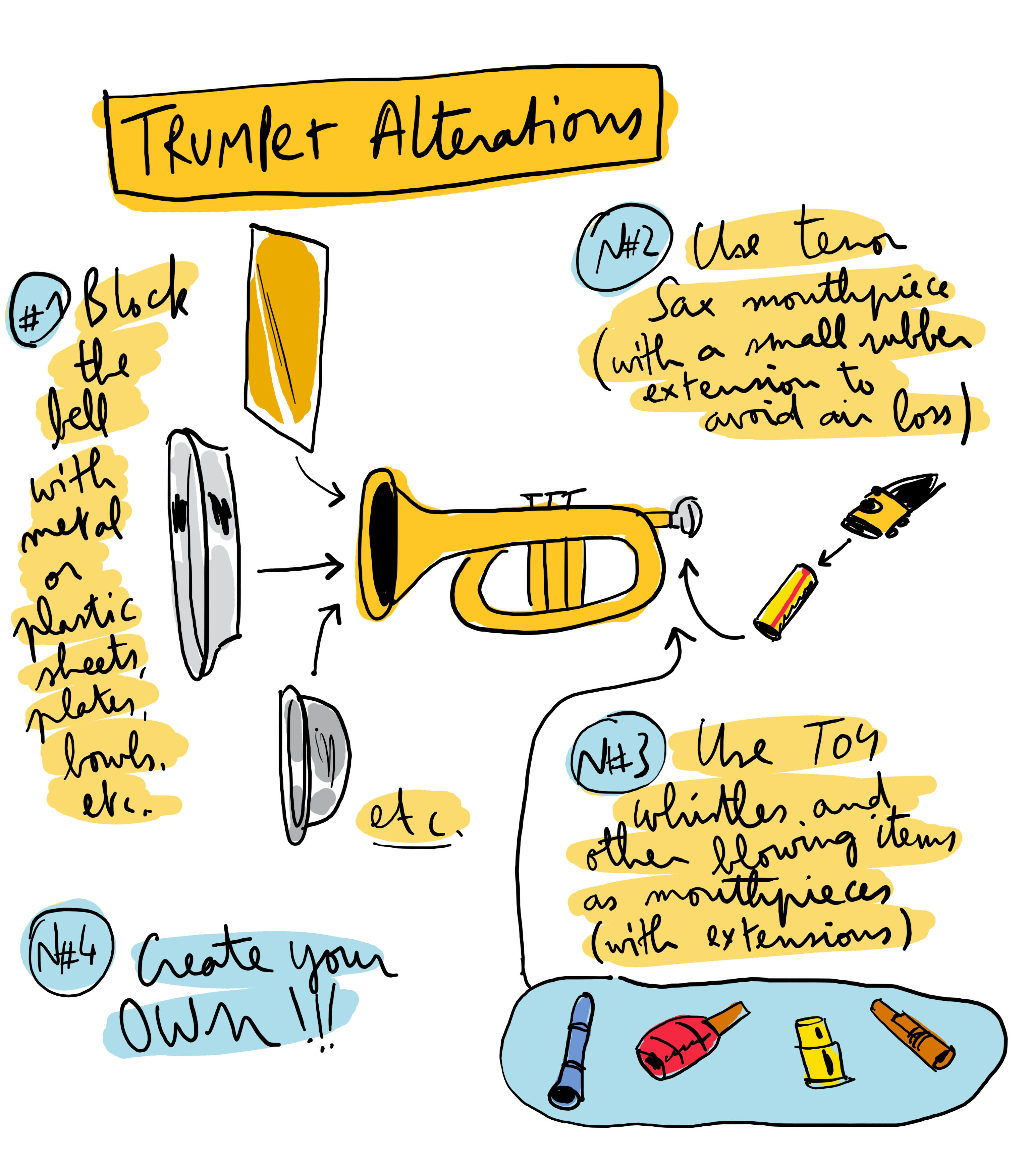
bandcamp
Press
Excerpts
Kerbaj sounds like he is enjoying rebelling against the common phonetics and syntax of the trumpet and its brass instruments legacy […] He has developed a radical mastery of the trumpet and idiosyncratic extended techniques and vocabulary and he knows how to paint arresting soundscapes, sketch tense cinematic narratives, and tell disturbed sonic stories, always spiced with fine doses of dark humor.
[Eyal Hareuveni – The Free Jazz Collective]
Never one to shy away from humor, Kerbaj unleashes a miasma of parps, borborygmi and gaseous emissions with impeccable musicality. Elsewhere, he gathers a bestiary of real and mythical creatures, including groaning donkeys, whinnying horses, forlorn Wookiees and agonized dinosaurs. We move from a junkyard strewn with bicycle horns, rusty drills and malfunctioning diggers to a spaceship full of phased drones and throbbing heating vents.
[Stewart Smith – The Wire]
Mazen Kerbaj is an astounding improviser, as clearly demonstrated by this adventure for solo trumpet. On the CD cover, he writes "No cuts, no overdubbing, no use of electronics"; he's right in advising us, because the sounds emitted by his instrument are beyond the limits of believable.
[Massimo Ricci – Touching Extreme]
Kerbaj’s radical sounds are means, not ends; he uses them to the listener on a trip in which one’s sense of the expected is undermined and one’s hackles can’t help but rise.
[Bill Meyer – Signal To Noise]
Kerbaj’s trumpet playing is certainly unorthodox: he sits down, holds it between his knees and even manages to play it simultaneously with assorted percussion instruments. Circular breathing, it goes without saying, comes naturally. Kerbaj extends the trumpet to the point of almost abandoning it completely, going way beyond Axel Dörner's steam engine huff and puff and the quarter-tone exhalations of Franz Hautzinger.
For all its experimental rigour, his music really swings!
[Vid Jerast - Paris Transatlantic]
Kerbaj specializes in the low and the flatulent, but even in these registers his improvising isn’t declamatory (like, say, the great Bill Dixon) as much as it is furtive. Rather than splashing paint on a canvas, he traces invisible shapes in the air.
[Jason Bivins – Dusted Magazine]
On the back cover it says 'no cuts, no overdubbing, no use of electronics', and especially the latter is hard to believe.
[Vital Weekly - Frans de Waar]